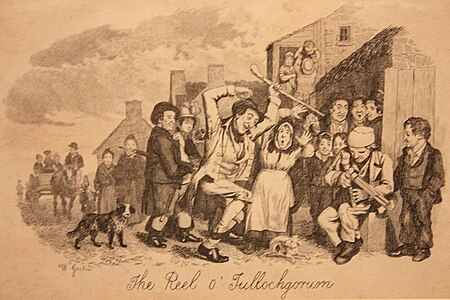The Battle of Otterburn

The Death of Douglas at the Battle of Otterburn on 5th August 1388: picture by Sir John Maxwell The Battle of Otterburn took place on August 5, 1388. It was part of a three-pronged assault by Scottish forces against the English. A Scots army sailed across the Irish Sea to attack Carrickfergus, the Duke of Albany raided the western marches towards Carlisle, and James Douglas, 2nd Earl of Douglas, attacked Henry Percy in Northumberland. Douglas defeated Percy, but was killed in the battle. The ballad - The Battle of Otterburn appears in a manuscript dated circa 1550. The author is unknown. It was printed on broadsides as both The Battle of Otterburn and The Battle of Otterbourne . It was later printed in Percy's Reliques , collections by David Herd (1776) and Walter Scott's Minstrelsy of the Scottish Border (1833). The Child B allads are 305 traditional ballads from England an...
